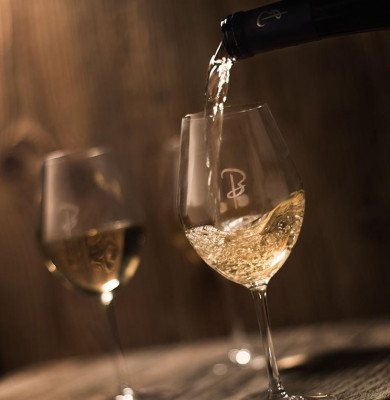
What is the purpose of sulfites in wine?
It is not insignificant that sulfites are found in the wines. Naturally present sulfites, added sulfites, virtues and risks, we tell you everything!
What are sulfites?
The sulphur dioxide (SO2) is a chemical compound of the sulfite family that can be found in many foods and beverages. Sulphites are widely used in the food industry (dried fruits, cold cuts, condiments, cereals, etc.) and can be used in oenology. Sulphites are also used in the manufacture of certain food packaging materials such as cellophane.
Why add sulfites to wine?
Why does wine contain sulfites?
We can very well find Sulphites in a wine even when the words "no added sulfites" appear on the label of the wine bottle. In fact, during the alcoholic fermentationThe yeasts in the grapes always produce sulfur in small quantities. Thus, "wines without added sulfites" contain sulfites, but the sulfites are those naturally produced during fermentation.
Why put sulfites in wine?
Even if the presence of sulfites in wine is the result of a natural process, it is also possible to add sulfites voluntarily at the time of its elaboration. They are used for their antioxidant and antiseptic virtues:
- Sulfur (SO2) is used to protect the must and wine from oxidation by consuming the free oxygen present,
- Sulfur disrupts the functioning of bacteria (preventing their reproduction and causing their death).
They allow to extend the duration of wine conservation and protect it from oxidation. Sulphites also prevent the growth of fungi or bacteria inside the wine bottle. Thus, they promote a good tasting of the wine.
The addition of sulfites is highly regulated. Numerous standards must be respected and a maximum dose according to the type of wine must not be exceeded. It should be noted that wines from organic farming also contain added sulfites.
Are there any risks associated with the presence of sulfites in wine?
Sulphites can cause headaches or allergic reactions in some people who are sensitive to them. Sulphites have been classified as allergens. The mention "contains sulphites" on the label of wine bottles has thus become mandatory.
Total sulphur dioxide levels may not exceed the following limits in Europe (for conventional agriculture):
- 150 mg/litre of sulphur for red wines
- 150 mg/litre of SO2 for sparkling wines
- 200 mg/litre for white and rosé wines with a residual sugar content of less than 5g/litre.
For wines with a sugar content of more than 5g, the S02 is limited to 250mg/liter. It can go up to 400mg/litre for Late Harvest and Noble Grape Selections.
for the organic wines (Organic Label), the maximum use of sulfur is lower than :
- 100 mg/litre for red wine and sparkling wine,
- 120 mg/litre for rosé and white wines.
Sulfites and Bestheim wines
The issue of sulfites in wine is a national health issue. At Bestheim, the health and well-being of our customers are at the heart of our concerns. That is why we try to to limit the use of sulfites to the strict minimum in the winemaking process. For example, our Riesling Grand Cru Schlossberg 2018 contains only 74mg/L of S02, less than half the permitted standard. Public health and respect for the environment are indeed at the heart of our priorities.
Discover our commitments for the future through our Charter "Générations FuturesPreservation of biodiversity (in our vineyards), prevention of pollution (development of authorized practices in organic agriculture), sustainable use of resources, implementation of solutions to have alternatives to insecticides, pesticides and other phytosanitary products...
